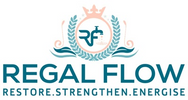
Can You Have a Boiling Water Tap with a Water Softener?
Boiling water taps are the ultimate modern kitchen upgrade, but many homeowners wonder if they can handle a softened supply. The short answer is that soft water is often the best friend a boiling tap can have, as it eliminates the rapid scale buildup that kills heating elements. Our guide examines the compatibility and safety of this setup to ensure you get instant hot water without compromising your hardware. This technical look at appliance health is a key feature of The Benefits of Soft Water: How a Water Softener Protects Your Home, but let's look at why your boiling tap will run better on a soft supply.
Understanding Boiling Water Taps and Water Softeners
How Boiling Water Taps Work
Boiling water taps do exactly what they say on the tin. They provide near-instant hot water, typically held in a small, insulated tank under the sink and ready for action when you need it. Whether you’re filling a pan for pasta or making a quick cuppa, they’re a real time-saver. Most modern models come with safety features to prevent burns, along with energy-saving designs that keep water hot without driving up your bills. And with the growing popularity of hot tap brands across the UK, there’s a design to suit every kitchen.
The Role of a Water Softener
If you live in a hard water area and much of the UK does, you will know the pain of limescale. It clogs your kettle, clouds your glassware, and coats your shower head in white crust. Water softeners help tackle this by removing calcium and magnesium from your mains supply. The result? Soft water that’s kinder on your skin, appliances, and plumbing. They're often tucked away under the sink or in a utility room, quietly working to protect your home from scale damage.
Compatibility: Can They Be Used Together?
Yes, you absolutely can use a boiling water tap with a water softener. In fact, in many homes, it’s a match made in heaven. But as with all good things, there are a few things you will want to get right.
Benefits of Combining Them
Preventing Scale Build-up in the Boiling Water Tap
Here’s the big win: softened water dramatically cuts down on limescale. That’s great news for boiling taps, which are especially vulnerable due to the constant heat. Less limescale means fewer breakdowns, fewer service calls, and a tap that stays looking shiny and working well for longer. If you’ve ever opened a kettle and found a crusty mess inside, you’ll appreciate the difference.
Improved Taste of Hot Drinks
Hard water can leave a bitter aftertaste in your tea or coffee. Some even say it dulls the flavour of herbal teas and spoils the crema on a good espresso. Softened water, especially when filtered, delivers a cleaner, fresher taste. If you’re fussy about your brew (and let’s face it, many of us Brits are), then you’ll love the upgrade in flavour.
Installation Considerations
Before you rush to install your tap, check compatibility with your softener system. Some boiling water taps are designed specifically to work with softened water. Others might need a separate cold feed, so the drinking water bypasses the softener.
Here are a few key things to double-check:
-
Read the manufacturer’s instructions for both systems.
-
Make sure your water pressure is up to scratch as some softeners reduce it slightly.
-
Consider a filter if you’re concerned about sodium levels or taste.
-
Always use a qualified installer to avoid voiding warranties or causing plumbing issues.
Potential Issues and How to Avoid Them
While the combination of softened water and a boiling tap works beautifully in most cases, there are a few potential hiccups to watch out for. Some users notice a slight taste difference when drinking softened water, particularly if it is unfiltered. If that is a dealbreaker, go for a filtered boiling water tap that tackles both taste and safety. Pressure can also be a concern, especially in homes with older plumbing. Boiling taps often need a certain level of pressure to function properly, so be sure your softener system doesn’t restrict flow too much. And finally, installation matters. Don’t cut corners. A professional plumber will ensure the setup is right, leak-free, and optimised for long-term use.
Conclusion: Enjoying Instant Hot Water with Softened Water
So, can you use a boiling water tap with a water softener? Absolutely. In fact, pairing them together can give you the best of both worlds, limescale-free performance and consistently great-tasting hot drinks. You’ll protect your tap, improve your water quality, and make your kitchen that little bit more efficient. Just make sure to check compatibility, consider a filtration system, and opt for a professional installation. Once it is all set up, you will wonder how you ever lived without it.
More Water Softener info our customers have found helpful
Top Benefits of Installing a Water Softener in Your Home
Is Soft Water Better for Your Skin?
Will a Water Softener Remove Build-up in Pipes?
How Long Does it Take a Water Softener to Clear Pipes?
Can I Run Hot Water Through a Water Softener?
Does a Water Softener Affect Cold Water?
What is the Downside of a Water Softener?


Leave a comment